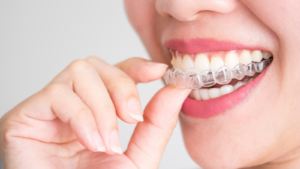Optimal Vitamin B Complex Dosage for Mouth Ulcers: A Comprehensive Guide
Introduction:
Mouth ulcers, also known as canker sores, are painful sores that can make eating, drinking, and even speaking uncomfortable. These ulcers can be caused by various factors, including stress, injury, or a deficiency in certain vitamins and minerals. Optimal Vitamin B Complex Dosage for Mouth Ulcers plays a crucial role in oral health. In this comprehensive guide, we will explore the optimal vitamin B complex dosage for preventing and treating mouth ulcers.
Understanding Mouth Ulcers:
What Are Mouth Ulcers?
Mouth ulcers are small, round or oval sores that develop on the mucous membranes of the mouth, including the inside of the cheeks, lips, tongue, and the roof of the mouth. They are typically white or yellowish with a red border and can be quite painful.
Causes of Mouth Ulcers
- Vitamin Deficiencies: Deficiencies in vitamins such as B1 (thiamine), B2 (riboflavin), B3 (niacin), B6 (pyridoxine), B9 (folate), and B12 (cobalamin) can contribute to the development of mouth ulcers.
- Stress: High-stress levels can weaken the immune system and make individuals more susceptible to mouth ulcers.
- Injuries: Accidental bites, dental braces, or rough dental work can cause trauma to the mouth and lead to ulcers.
- Food Sensitivities: Some individuals may be sensitive or allergic to certain foods, which can trigger mouth ulcers.
- Medical Conditions: Conditions like celiac disease, Crohn’s disease, and HIV can increase the risk of mouth ulcers.
The Role of Vitamin B Complex
Vitamin B complex is a group of water-soluble vitamins that are essential for various bodily functions, including maintaining a healthy mouth. Here’s how each B vitamin contributes to oral health:
B1 (Thiamine)
• Helps maintain healthy nerves in the mouth and tongue.
B2 (Riboflavin)
• Supports the health of the mucous membranes in the mouth.
B3 (Niacin)
• Promotes good blood circulation in the mouth tissues.
B6 (Pyridoxine)
• Aids in reducing inflammation and preventing mouth ulcers.
B9 (Folate)
• Plays a role in cell division and tissue repair in the mouth.
B12 (Cobalamin)
• Essential for the overall health of mouth tissues and nerves.

Optimal Vitamin B Complex Dosage
Determining the optimal dosage of vitamin B complex for preventing and treating mouth ulcers can be challenging, as individual needs vary. A healthcare provider must be consulted before beginning any supplement regimen. However, here are some general guidelines:
Recommended Daily Allowance (RDA)
• B1 (Thiamine): 1.2-1.4 mg
• B2 (Riboflavin): 1.1-1.3 mg
• B3 (Niacin): 14-16 mg
• B6 (Pyridoxine): 1.3-1.7 mg
• B9 (Folate): 400-600 mcg
• B12 (Cobalamin): 2.4 mcg
Supplementing Vitamin B Complex
If you are deficient in any B vitamins or experiencing recurrent mouth ulcers, your healthcare provider may recommend a vitamin B complex supplement. Dosages may vary, but a typical recommendation could be:
• Vitamin B complex tablet containing 50-100 mg of each B vitamin.
Dietary Sources of Vitamin B Complex
While supplements can be beneficial, obtaining your B vitamins from a balanced diet is ideal. Try including these foods in your meals:
• B1 (Thiamine): Whole grains, nuts, pork, and beans.
• B2 (Riboflavin): Dairy products, lean meats, and leafy greens.
• B3 (Niacin): Meat, fish, peanuts, and mushrooms.
• B6 (Pyridoxine): Poultry, fish, bananas, and avocados.
• B9 (Folate): Leafy greens, citrus fruits, and legumes.
• B12 (Cobalamin): Meat, fish, dairy products, and fortified cereals.
Conclusion
Optimal vitamin B complex dosage for mouth ulcers plays a crucial role in oral health. is essential for maintaining oral health. While supplements can be beneficial, it’s crucial to consult with a healthcare provider to determine your specific needs. Additionally, focusing on a balanced diet rich in B vitamins can contribute to overall well-being.
Frequently Asked Questions (FAQ’s)
1. Can vitamin B complex supplements cure mouth ulcers?
Vitamin B complex supplements can help prevent and alleviate mouth ulcers, but they may not cure them completely. See a medical professional for tailored guidance.
2. Are there any side effects of vitamin B complex supplements?
In general, vitamin B complex supplements are safe when taken at recommended dosages. Still, overindulging may result in negative consequences. Always follow your healthcare provider’s advice.
3. How long does it take for vitamin B complex supplements to show results for mouth ulcers?
Results may vary, but some individuals experience relief within a few days of starting supplements. It’s critical to follow your programme consistently and with patience.
4. Can I get enough vitamin B complex from my diet alone?
A balanced diet can provide sufficient B vitamins for most people. However, those with deficiencies or specific dietary restrictions may benefit from supplements.
5. Are there any other home remedies for treating mouth ulcers?
Maintaining good oral hygiene, using saltwater rinses, and avoiding trigger foods can help manage mouth ulcers in addition to vitamin B complex supplementation.
In this comprehensive guide, we’ve covered the importance of vitamin B complex for mouth ulcers, optimal dosages, dietary sources, and more. Remember to prioritize your oral health and consult with a healthcare professional for personalized advice on vitamin supplementation. For more informative content on dental care, Dr. Manasi, the best dentist in Thane, offers valuable insights through her blogs. Explore the latest post, “Unlocking Dental Floss Benefits,” for additional tips on maintaining a healthy and vibrant smile.
Photo Credit:
https://www.freepik.com/free-photo/close-up-food-complements_18492156.htm





